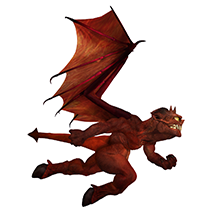(This review appeared in Valkyrie magazine issue 18. It was written in less than 2 evenings)
Genres that had eluded role playing successes have been coming to the fore recently with games like Deadlands and Legend of the Five Rings (L5R). Now AEG, makers of L5R, have turned their attention to swash buckling adventures with their latest game 7th Sea.
The machinations unfurl in Thea that is somewhat like sixteenth century Europe. A rich backdrop of fallen empires, prophets and crusades lies behind the pirates and secret orders who plot in dark corners. Nations vie for power while the leaderless Vaticine church’s inquisitors hunt down heretic scientists. Thea is a land of many enemies, allies and betrayals for your characters.
Reflections of Elizabeth’s England, feuding Germanic nations, Dumas’ France and Machiavellian Italy can be found in the major nations. The tensions and conflicts between nations provide a wealth of potential plots. Amusing little details buried throughout, such as Good King Sandoval of Castilles striking resemblance to one Leonardo De Caprio.
Thea is a continent in search of new worlds. The sketchily covered Cathay and the Empire of the Crescent Moon lie on the edges of Thea. Thea lacks a Caribbean or the Americas for characters to plunder and explore. The resulting holes in an otherwise well assembled background might cynically be seen as deliberate omissions for later supplements to fill.
Like L5R a number of ten sided dice equal to a character’s attribute and skills are rolled. A number equal to the attribute are kept, if the total is more than the difficulty the character has succeeded. Modifications to the L5R system have been made to fit with the genre. The flamboyant fencing system allows squads of sword fodder thugs to be handled in a style reminiscent of Errol Flynn’s screen battles. Combat is less lethal player character being at worst knocked unconscious awakening in the clutches. It is extremely difficult to kill a character but it is possible.
The game swings in as hard backed Players’ and Game Masters’ guides each of two hundred and fifty-six pages. Both books are well laid out, the appropriate artwork consistently good and clear typography. Later in the books a number of grammatical and spelling errors spoil the otherwise well produced effect. Both books are easy to read and the material is reasonably well organised for use in play however for books of this size the indexes appear to have been an after thought.
The introductory colour plates in the Players’ Guide and similarities to well-known historical realms makes familiarisation with Thea easy. These snapshots are then expanded onto a broader canvas without swamping players in too much detail.
Character creation is covered at some length. You develop hero concept is created by answering questions. Next you spend points to buy the character’s traits, advantages and skills. The five traits have a more heroic celluloid feel than L5R’s rings. The skills have been suitably revised and disadvantages have been replaced with hubris. Each player may have a hubris that is a character’s heroic flaw, such as greed. This restriction prevents players loading their characters down with problems.
The Drama chapter fleshes out the rules covering the usual escapades. Drama dice allow heroes to turn the odds of a situation in their favour while some characters may spend them to use magic. A character’s magic varies with their country of birth. For example the Fate witches of Vodacce are feared for their curses. Finally a chapter provides advice on role playing in Thea.
The Game Masters’ Guide provides expanded background material. Game Masters should probably encourage players to read the sections on their character’s home nation. Further chapters include guidance about villains and a method for determining the style of game your players want. Expanded rules cover a range of topics that Game Masters’ can expect to rule on such as battles and sea faring. Advice on running games and designing adventures completes the book.
I found some of the material particularly dull in particular the bestiary in the Game Masters’ Guide lacks any real verve being a collection of the mundane (canines), the familiar (sirens) and the uninspired (ruin monsters). These were, no doubt, necessary but none of them inspired me.
Compared to the historical map of Europe some interesting areas for adventure have been sacrificed to reduce the complexity of Thea. The loss of the Scottish English borders loses what was at the time a region rife with bandits, mysteries, alleged witch craft and conspiracies. This over simplification has created a more manageable but less interesting setting.
A curious imbalance exists in the game between Thea’s background and the system. The system is designed for heroic boarding actions and the exploration of dangerous ruins. The background material leans heavily towards intrigues and life at court. As they are these books lack enough material to run either kind of story.
The system is a well-handled update of the popular L5R system for a European setting. The combat system is suitably cinematic with a wide variety of moves and fighting styles available. For a game with maritime flavour though there is a shortage of detailed ship descriptions and the naval battle rules are a little light. While they avoid the unnecessary encumbrances of a wargame they don’t allow for much variety between battles.
Overall a playable game system with good production standards. However, there are some imperfections that should be corrected in future printings or with additional material in forthcoming releases. One of the best thrust at this often ignored genre to date.
